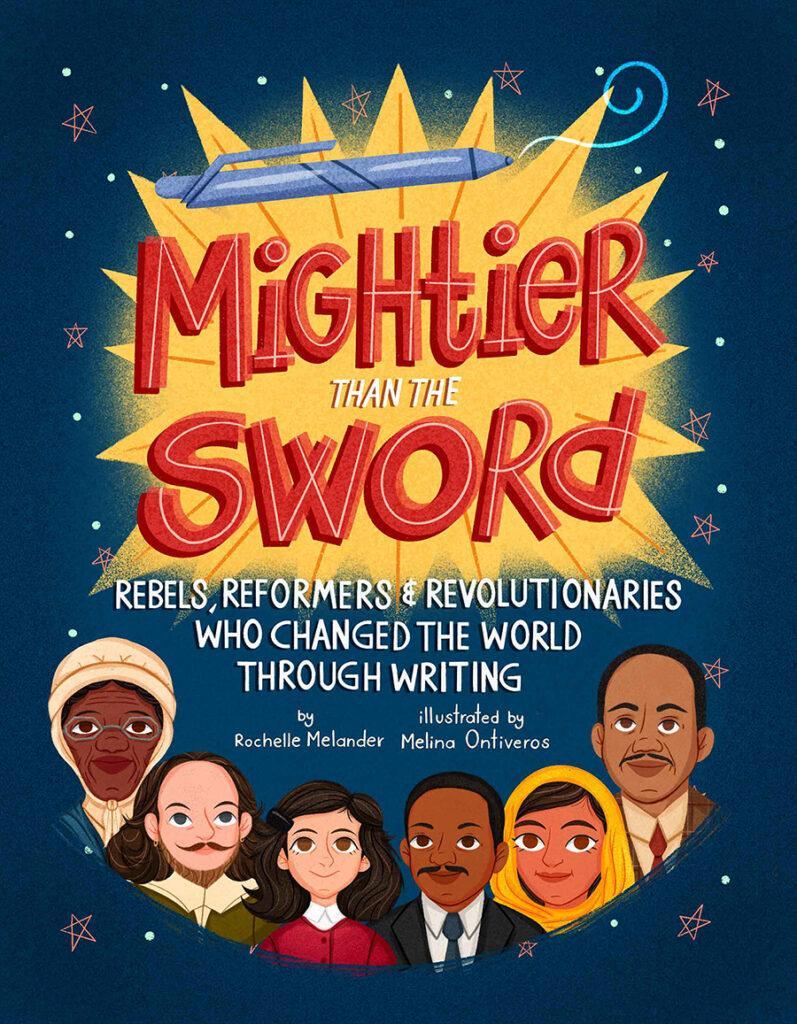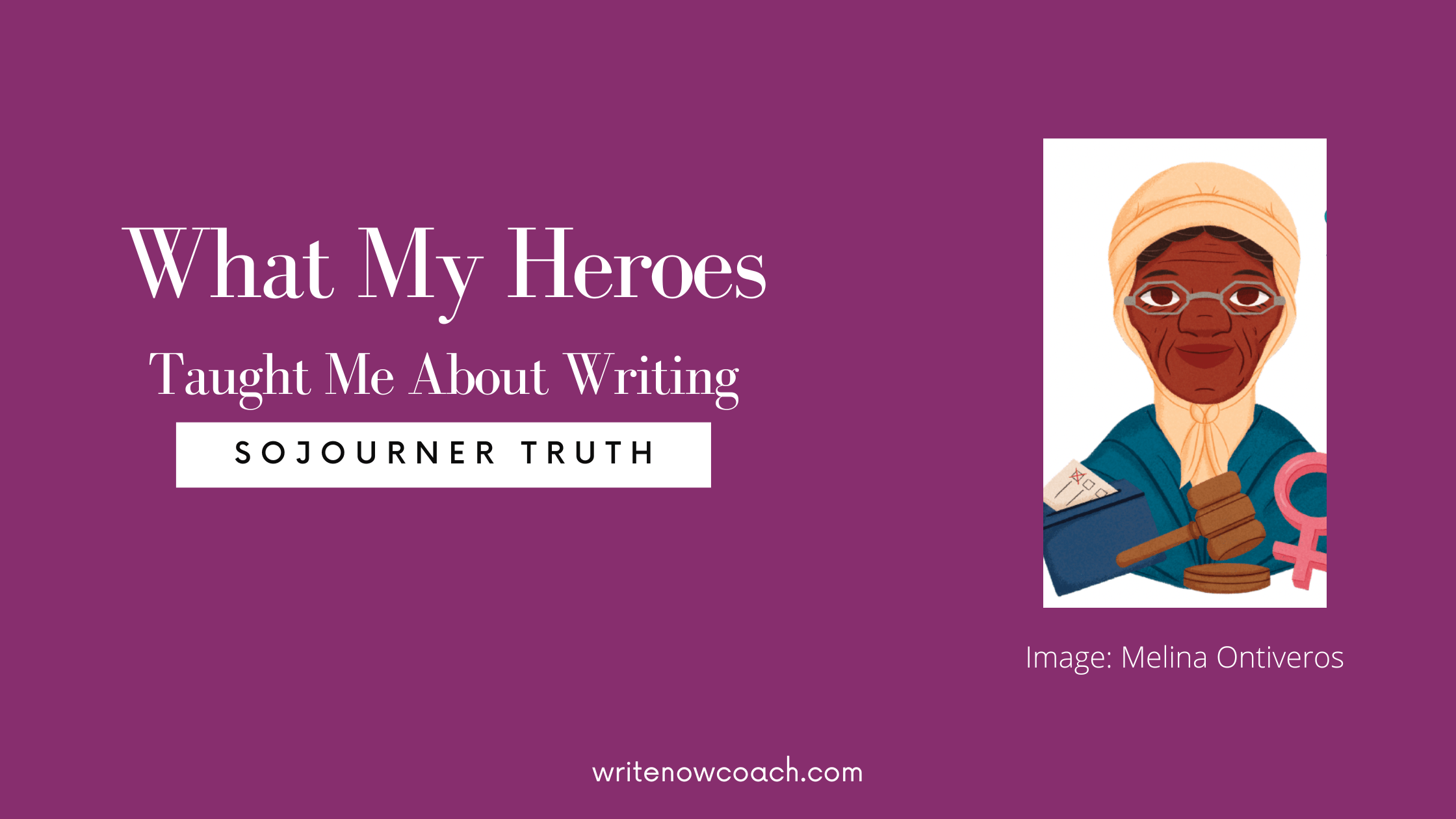What My Heroes Taught Me about Writing: Sojourner Truth
by Rochelle Melander
Ninety years before Rosa Parks refused to give up her seat on a bus, Sojourner Truth refused to get off a streetcar in Washington, D.C. In 1865, a conductor dislocated Truth’s arm when he tried to toss her off. Truth sued the District of Columbia and won. The conductor lost his job, and the company had to enforce DC’s desegregation law.
Sojourner Truth never learned to read or write. In defiance of the popular anti-slavery narratives that equated literacy with freedom, Truth refused to learn. She preferred the spoken word.
Still, Truth could not escape the popularity of anti-slavery narratives. Truth’s friend Frederick Douglass sold 5,000 copies of his book in the first four months. At the encouragement of friends, Truth wrote her own book, dictating the story to her friend Olive Gilbert.
Truth published Narrative of Sojourner Truth: A Northern Slave (1850) on credit and paid for it with the proceeds of the book. In 1851, Sojourner Truth launched a speaking tour to help sell her book. On May 29, she appeared at the Women’s Rights Convention in Akron, Ohio. This speech—“On Women’s Rights—became her most famous talk.
In the preface to her book, Truth wrote: “I am a self-made woman.” And she was! When Truth saw the popularity of, a small-mounted self-portrait, she had several made. She defied convention by using the props of a white Christian woman in the photo: a Quaker cap, shawl, flowers, knitting and an open book. The bottom of each card read: “I sell the shadow to support the substance.” She sold these at speaking engagements.
When Sojourner Truth’s acquaintance Harriet Beecher Stowe published a story about Truth that contained many mistakes, including reporting her death—Sojourner Truth wrote a letter to the editor of the Boston Commonwelath. She encouraged people who sought the truth to read her book: “You will find them correct, they are Sojourner herself.”
After enslaved people were freed, she worked to help them make a living and gain the right to vote.
A Writer’s Takeaway
+Sojourner Truth did not let other people define her or her life. She told her own story. What stories do you need to tell?
+Sojourner Truth had challenges that most would claim are severe limitations to becoming an author and speaker: she couldn’t read or write. And yet she wrote and published a book and went on speaking tour. She always found a way to overcome the limitations and succeed. How could you overcome your current limitations?
+Sojourner Truth spoke and worked for the rights of freed Black people and women. This commitment to support others fueled her work. When she encountered obstacles, she pushed forward because she wanted to help people. What commitments fuel your work? How can your passion for service help you get stuff done?
Read more about Sojourner Truth in my Book, Mightier Than the Sword.










